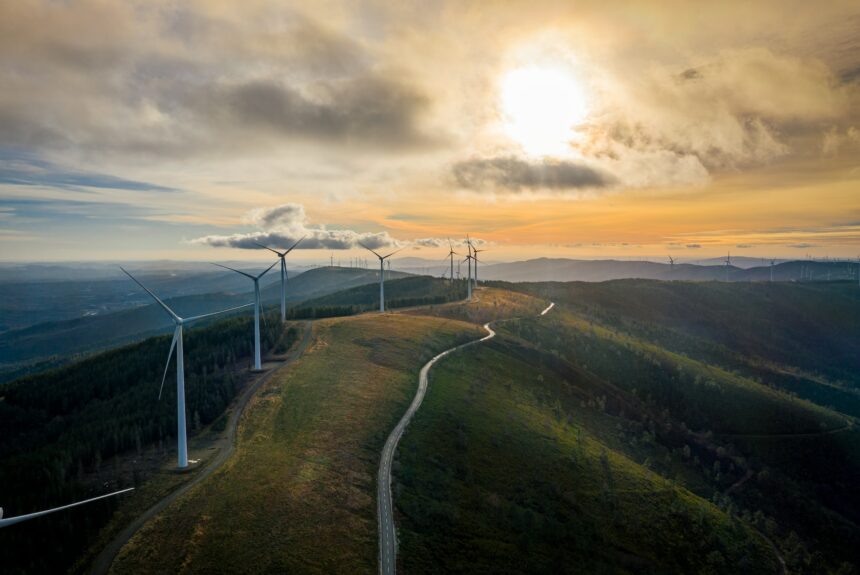For much of the 20th and 21st centuries, the world has expanded and embraced global free trade to meet the needs of consumers and businesses. In the last few years, however, approval for free trade has declined as more and more governments have turned to protectionism. To address issues like supply chains, energy security, economic stagnation and climate change, policymakers have proposed and implemented policies to reshore manufacturing and heavily subsidize the domestic production of everything from solar cells to semiconductors. While these may sound like good things, protectionist industrial policies in the U.S. and Europe will likely end up hurting the environment and the economy by stifling growth and restricting economic opportunity. Rather than continue down the protectionism path, lawmakers should open up competition and trade to the benefit of consumers, the economy, and the environment.
>>>READ: The Coming Energy Expansion and What it Means for the Climate
For the United States, the hallmark green protectionist policy is the Inflation Reduction Act (IRA), which created and expanded lucrative tax credits to attract green investments. The law also doubled down on Made in America requirements which give companies additional tax credits if they source steel and iron from U.S. manufacturers for certain qualified projects. Qualifying for EV tax credits under the IRA also requires at least 50% of battery components of electric vehicles to be finally assembled in North America, a figure that will rise to 100% by 2029. In response, the European Union has introduced its own set of green industrial laws through its Green Industrial Plan, which mirrors many of the incentives and subsidies of the IRA.
While these laws have been effective in bolstering clean energy investments (though at the opportunity cost of steering capital away from projects that don’t receive politically preferred support), they are not economically efficient. In fact, the continued picking of winners and losers could slow the global energy transition. As a recent paper from the European Central Bank (ECB) points out, the IRA’s provisions will attract businesses to the U.S. but weaken customer bases in foreign economies which would impact economies of scale.
The Economist writes:
The ECB research quantifies the winners and losers of the IRA. Green sectors in America, unsurprisingly, benefit. But producers in other countries lose out so much that ‘the IRA could slow the green transition at global level’. That is an astonishing result. Add in the subsidies and domestic-content requirements implemented by other countries and the drag could be even bigger.
If policymakers want to reduce emissions and advance human prosperity, kneecapping free trade and, in turn, decreasing economic activity, is the wrong approach. Free trade has encouraged countries to focus on specialization which allows for more efficient production. Global free trade has also lifted billions of people out of poverty by bringing new economic opportunities to developing countries. Economic growth is a lynchpin to environmental prosperity by empowering public and private sector investments in cleaner water and sanitation systems, more reliable energy sources, and robust infrastructure that protects people from natural disasters. Hamstringing economic growth abroad, as protectionist industrial policies in the developed world do, will only keep poor nations poor and slow down climate progress.
>>>READ: In Defense of Green Growth
While some economists and academics posit that free trade accelerates a “race to the bottom” where corporations exploit the developing world and shift production to countries with lax environmental standards, history shows that this is not true. As the Cato Institute’s Globalization Project points out:
The overall direction [of globalization] is one toward better jobs, higher wages, safer workplaces, and less child labor, and it has happened the fastest in the countries that have opened the most and are most integrated in global supply chains…Between 1994 and 2022, the share of employed persons worldwide who live in extreme poverty (receiving an income below $1.90 adjusted for inflation and local purchasing power) declined by more than three‐quarters, from 31.6 percent to 6.4 percent—a reduction of more than half a billion people despite setbacks during the pandemic.
Both the IRA and European Green Industrial Plan also fail to take into account the amount of time it takes to build up a domestic manufacturing base. It takes years to build the necessary infrastructure to expand clean energy use, including new battery factories and critical mineral mines. Throw in inefficient permitting requirements and frivolous litigation and projects can quickly be delayed by several more years.
To meet domestic needs and accelerate international economic growth, policymakers in the U.S. and Europe should turn away from protectionism and subsidization and instead embrace policies rooted in economic freedom. Opening up trade, reducing inefficient regulations, and promoting pro-growth tax policies will allow the market to respond to consumer demands for cleaner technologies without leaving the developing world behind.
The views and opinions expressed are those of the author’s and do not necessarily reflect the official policy or position of C3.
